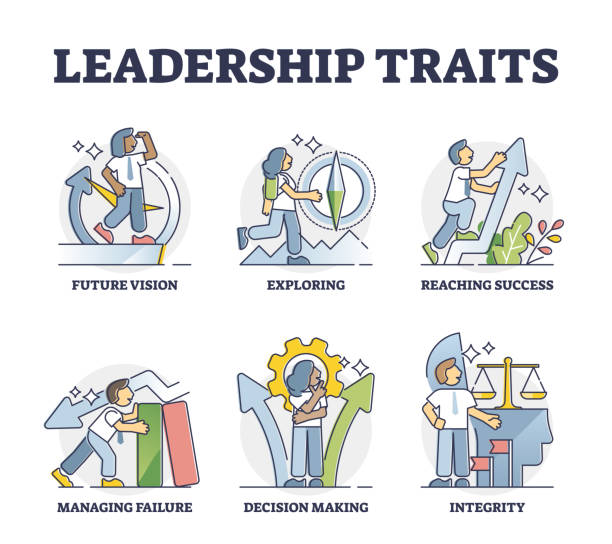
Leadership is a complex phenomenon, and researchers have long sought to understand the qualities and characteristics that make a good leader. One approach to this study is the trait theory of leadership, which posits that certain personality traits and characteristics are associated with effective leadership. Let us briefly explore the trait theory of leadership, its history, and examples of leaders who embody its principles.
What is Trait Theory of Leadership?
The trait theory of leadership suggests that certain traits and characteristics are associated with effective leadership. Proponents of this theory argue that individuals who possess these traits are more likely to be successful leaders than those who do not. Some of the common traits associated with effective leadership include intelligence, self-confidence, integrity, decisiveness, and empathy.
History of Trait Theory of Leadership
The trait theory of leadership has its roots in the early 20th century when researchers began to explore the personality traits of successful leaders. One of the first researchers to study this area was Thomas Carlyle, who argued that great leaders possessed a particular set of inherent qualities that made them successful.
In the 1940s and 1950s, researchers began to use statistical methods to identify the traits associated with effective leadership. One of the most influential studies in this area was conducted by Ralph Stogdill, who analyzed over 100 studies on leadership and identified a set of common traits associated with effective leadership, including intelligence, initiative, persistence, and social skills.
Over time, researchers began to recognize that traits alone were not sufficient to explain effective leadership. The situation and context in which leadership occurs also play a significant role in determining leadership effectiveness. As a result, modern leadership theories often integrate both trait and situational factors.
Examples of Trait Theory in Leadership
Many successful leaders possess traits associated with the trait theory of leadership. Here are a few examples:
- Abraham Lincoln – Self-confidence and persistence
Abraham Lincoln is widely regarded as one of the greatest American presidents. His unwavering self-confidence and persistence were instrumental in his success as a leader. Despite numerous setbacks, including multiple failed runs for political office, Lincoln never gave up on his goal of becoming president.
- Steve Jobs – Vision and Decisiveness
Steve Jobs, the co-founder of Apple, was known for his strong vision and decisive leadership style. He had a clear sense of what he wanted to achieve with his company and was not afraid to make bold decisions to achieve his goals.
- Martin Luther King Jr. – Empathy and Integrity
Martin Luther King Jr. was a civil rights leader who advocated for equal rights for African Americans. He was known for his empathy and integrity, which helped him to connect with people from all walks of life. His unwavering commitment to his principles and his ability to inspire others to join him were essential to the success of the civil rights movement.
- Indra Nooyi – Intelligence and Decisiveness
Indra Nooyi, the former CEO of PepsiCo, is known for her intelligence and decisive leadership style. She is credited with transforming the company by focusing on healthier food and beverage options and expanding the company’s global footprint.
- Elon Musk – Vision and Persistence
Regardless of whether you like or dislike him, Elon Musk, the CEO of SpaceX and Tesla, is known for his ambitious vision and persistent leadership style. Despite numerous setbacks and challenges, Musk has remained committed to his goal of making humanity a “multi-planetary species.”
In summary, the trait theory of leadership suggests that certain personality traits and characteristics are associated with effective leadership. While this theory has its limitations, it has contributed significantly to our understanding of what makes a good leader. By studying successful leaders, we can gain insight into the traits and characteristics that are essential for effective leadership.

